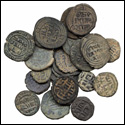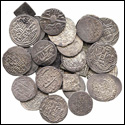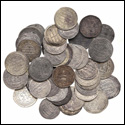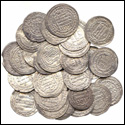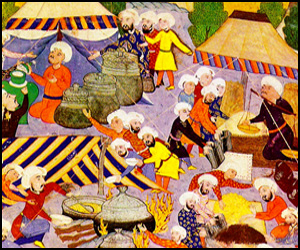Trade

|
The
awakening of the Christian West
in trade, industry and
farming in the Middle Ages highlights and confirms many crucial
points made previously:
First, the impact of the
12th century translations in the awakening of such
activities is inexistent, or shallow at best, which proves that
the generally held theory in Western history that the 12th
century renaissance of the Christian West
owes to the translations
of Greek
science
is ridiculous.
Second, the changes in these areas highlight, once more, that
all changes that took place in the Christian West
at the time were not due
to fortuitous conditions, or to local factors, or to the
recovery of lost heritage, but form part of a larger ensemble of
changes, that affected each and every area of learning, science,
economy, art, culture, and civilisation as a whole.
Third, as this chapter will confirm, these transformations, just
as every other transformation that took place in the 12th-13th
century, did so only once contact with Islam was made, and bears
obvious Islamic resemblance.
Fourth, this chapter also confirms previously observed patterns
that it was principally the parts of Western Christendom
that had contacts with
Islam that were first transformed in the particular fields they
were in contact with Islam. This is most particularly relevant
to the Italian cities, which were the most important traders
with Islam, and which, by some coincidence, once more, were the
first in Western Christendom to show major transformations in
industrial crafts, techniques, and also trade mechanisms and
banking.
|

